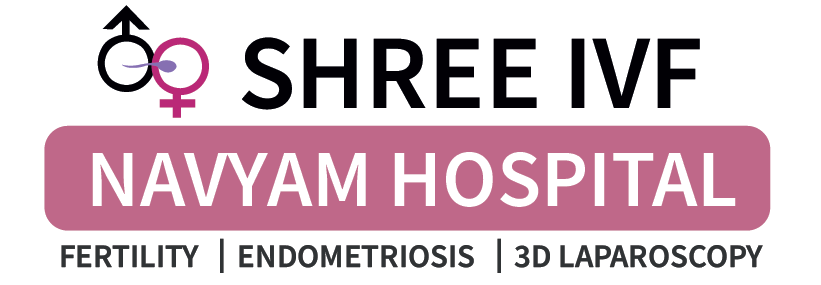
Deep endometriosis of the bowel is a complex and often misunderstood condition.Deep endometriosis of the bowel is different from routine endometriosis. It has a much higher component of fibrosis (thickening and scarring of connective tissue) and very little component of the glands and stroma.
Treatment Options for Deep Endometriosis of the Bowel
✅ What is Deep Endometriosis of the Bowel?
Deep endometriosis of the bowel is a severe form of endometriosis where endometrial-like tissue grows into the wall of the bowel, causing inflammation, scarring, and adhesions. It can affect various parts of the bowel, including the:
- Rectum (most common site)
- Sigmoid colon
- Small intestine
- Cecum or appendix
It often leads to severe pain, digestive issues, and infertility. Managing this condition requires personalized and multi-disciplinary treatment approaches.
💊 1. Medical Management
Medical treatment focuses on controlling symptoms and slowing the progression of the disease. It is generally recommended for mild cases or pre-surgical preparation.
✅ Hormonal Therapy:
- Combined Oral Contraceptives (COCs): Suppress menstruation and reduce pain.
- Progestins: (e.g., Dienogest, Medroxyprogesterone) reduce endometriotic lesions.
- Gonadotropin-Releasing Hormone (GnRH) Agonists: (e.g., Leuprolide, Goserelin) reduce estrogen levels, shrinking the lesions.
- GnRH Antagonists: (e.g., Elagolix) quickly lower estrogen levels, alleviating pain.
- Aromatase Inhibitors: (e.g., Letrozole, Anastrozole) block estrogen production, reducing lesion growth.
✅ Pain Management:
- Nonsteroidal Anti-Inflammatory Drugs (NSAIDs): (e.g., Ibuprofen, Naproxen) to relieve inflammation and pain.
- Neuropathic Pain Medications: (e.g., Gabapentin, Amitriptyline) for chronic pain.
- Opioids: For severe, unmanageable pain (used cautiously).
✅ Limitations of Medical Treatment:
- Only provides symptom relief, does not remove endometriotic tissue.
- Ineffective for advanced bowel involvement.
- Long-term use may cause side effects like bone loss (from GnRH agonists).
🔪 2. Surgical Management
Surgery is often necessary for moderate to severe bowel endometriosis causing significant pain, obstruction, or fertility issues.
✅ Laparoscopy:
- Minimally invasive surgery performed through small incisions.
- Uses a camera and specialized instruments to visualize and remove endometriotic lesions.
- Excision surgery is preferred over ablation, as it fully removes lesions.
✅ Bowel Resection Surgery:
- Recommended for severe cases with deep bowel wall infiltration.
- The affected portion of the bowel is surgically removed, and the healthy ends are reconnected (anastomosis).
- Types of bowel resection:
- Segmental resection: Removes a section of the bowel.
- Shaving technique: Removes surface-level endometriotic lesions.
- Disc resection: Removes a disc-shaped portion of the bowel wall.
✅ Robotic-Assisted Laparoscopic Surgery:
- An advanced, minimally invasive approach.
- Provides better precision and accuracy during bowel surgery.
- Reduces complication risks and recovery time.
✅ Colostomy or Ileostomy (Rare Cases):
- In severe cases, a temporary or permanent stoma may be required.
- Used when large sections of the bowel are removed.
✅ Post-Surgical Care:
- Hormonal therapy may be prescribed post-surgery to prevent recurrence.
- Physiotherapy and pain management for post-operative recovery.
🌿 3. Fertility-Preserving Options
For women with bowel endometriosis trying to conceive, fertility-preserving treatments are considered:
✅ In Vitro Fertilization (IVF):
- Recommended for women with bowel endometriosis and infertility.
- Reduces the need for extensive surgery by bypassing pelvic inflammation.
- Increases the chance of conception.
✅ Fertility Preservation Surgery:
- Women with severe endometriosis may undergo ovarian tissue preservation before surgery.
- Preserves reproductive potential.
✅ Laparoscopic Surgery Followed by IVF:
- In cases of moderate to severe bowel endometriosis, surgery is performed first.
- IVF is attempted post-surgery for higher success rates.
🌱 4. Lifestyle and Complementary Therapies
Complementary treatments help manage symptoms and improve quality of life.
✅ Dietary Modifications:
- Anti-inflammatory diet: Includes fruits, vegetables, whole grains, and omega-3 fatty acids.
- Avoid trigger foods: Gluten, dairy, caffeine, and processed foods.
- High-fiber diet: Helps ease bowel symptoms.
✅ Physical Therapy and Pelvic Floor Exercises:
- Strengthens pelvic muscles.
- Reduces pain and muscle tension.
✅ Acupuncture and Yoga:
- Improves blood flow and reduces pain.
- Relieves stress and improves mental well-being.
✅ Stress Management and Counseling:
- Managing stress and anxiety helps reduce pain flare-ups.
- Counseling supports mental health during treatment.
💡 Key Takeaway
Treatment for deep endometriosis of the bowel requires a multi-disciplinary approach. While medical therapy offers symptom relief, surgery is often necessary for moderate to severe cases. Fertility treatments, lifestyle changes, and complementary therapies can further enhance symptom management and quality of life. 🌷


